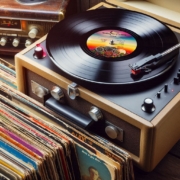Introduction
Artificial intelligence (AI) has been used to create background music, enhance existing songs, or compose original melodies. However, some AI music platforms have been accused of violating the copyrights of major record labels, who claim that the AI-generated music infringes on their original works.
The plaintiffs, Universal Music Group, Sony Music Entertainment, and Warner Music Group have countered that the AI systems used by the defendants are not capable of generating truly original and creative music and that they rely on the musical data and inputs provided by the plaintiffs and other sources. They have also asserted that their songs have distinctive and recognizable features that are copied or reproduced by the AI systems without authorization.
The lawsuits have raised complex and novel legal issues regarding the nature and scope of copyright protection for AI-generated music, and the criteria and standards for determining the originality, creativity, and ownership of AI-generated music. The outcomes of the lawsuits could have significant implications for the future of the AI music industry and the rights and interests of the musicians, composers, producers, and consumers involved.
Examples of AI Music Platforms Sued by Major Record Labels
- Amper Music: Amper Music is an AI music platform that allows users to create custom music for their videos, podcasts, games, or other projects. In 2020, Amper Music was sued by Universal Music Group, Sony Music Entertainment, and Warner Music Group, who alleged that Amper Music’s AI system copied the melodies, rhythms, harmonies, and lyrics of their songs without authorization.
- Mubert: Mubert is an AI music platform that generates adaptive music streams for various scenarios, such as meditation, fitness, gaming, or studying. In 2021, Mubert was sued by Sony Music Entertainment, who claimed that Mubert’s AI system used the samples, loops, and stems of their songs without permission.
- Boomy: Boomy is an AI music platform that enables users to create and sell their own songs, which are generated by an AI system based on the user’s preferences and inputs. In 2021, Boomy was sued by Warner Music Group, who alleged that Boomy’s AI system reproduced the melodies, structures, and styles of their songs without consent.
Conclusion
AI music platforms have been facing legal challenges from major record labels, who argue that the AI-generated music infringes on their copyrights. The lawsuits raise questions about the originality, creativity, and ownership of AI-generated music, and how the existing laws and regulations can address these issues.

